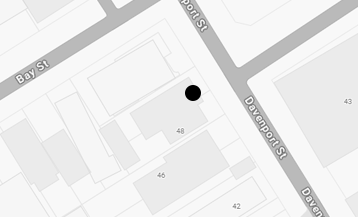If you or someone you know has been caught with a small amount of drugs in Queensland, you might be wondering what happens next. The good news is that Queensland has drug diversion programs that can help people avoid criminal charges and get the support they need. In this article, we’ll explain what drug diversion programs are, how they work, and what you need to know if you’re eligible.
What are drug diversion programs?
Drug diversion programs are a way for people who have been caught with drugs to avoid going to court and getting a criminal record. Instead of being charged with a crime, you’ll be offered the chance to attend a drug education session or assessment program. These programs are designed to help you understand the risks of drug use and get support if you need it.
There are two main types of drug diversion programs in Queensland:
- Police Drug Diversion Program: This program is for people who are caught with a small amount of drugs for personal use. If you’re eligible, the police will offer you the chance to attend a drug education session instead of being charged with a crime.
- Court Diversion Programs: If you’re charged with a drug offence and go to court, the magistrate may offer you the chance to attend a drug assessment and education session as part of your sentence. There are two court diversion programs in Queensland:
-
- Illicit Drugs Court Diversion Program (CDP)
- Drug and Alcohol Assessment Referral (DAAR) Program
Who is eligible for drug diversion programs?
To be eligible for the Police Drug Diversion Program, you must:
- Be caught with a small amount of drugs for personal use;
- Not have committed any other serious offences at the same time;
- Not have been convicted of a drug supply or trafficking offence before; and
- Admit to the offence and agree to attend a drug education session
The eligibility requirements for the court diversion programs (CDP and DAAR) are similar, but there are some differences:
- For CDP, you must be charged with a specific drug possession offence and plead guilty;
- For DAAR, you must acknowledge that your drug or alcohol use contributed to your offending; and
- You can only attend CDP twice and DAAR twice within a 5-year period.
What happens if you’re offered a drug diversion program?
If you’re offered a drug diversion program by the police or the court, you’ll have the choice to accept or decline. If you accept, you’ll be required to attend a drug education session or assessment program, which usually takes around 1-2 hours. The session will cover topics like:
- The health and legal consequences of drug use
- Strategies to reduce the harms of drug use
- Information about drug treatment and support services
If you complete the session, you won’t be charged with a criminal offence, and you won’t have to go to court. However, if you fail to attend the session or don’t complete it satisfactorily, you may be charged with the original offence and have to go to court.
What are the benefits of drug diversion programs?
Drug diversion programs have many benefits for both individuals and the community. Some of the key benefits include:
- Avoiding a criminal record: If you complete a drug diversion program, you won’t be convicted of a criminal offence, which means you won’t have a criminal record. This can make it easier to get a job, travel, or access other opportunities in the future.
- Getting support and education: Drug diversion programs provide an opportunity to learn about the risks of drug use and get support if you need it. You’ll be able to talk to a health professional about your drug use and get advice on how to reduce the harms and get help if you want to stop using drugs.
- Reducing the burden on the criminal justice system: By diverting people away from the courts and into education and treatment programs, drug diversion programs can help reduce the workload on the criminal justice system and save money in the long run.
- Addressing the underlying causes of drug use: Many people who use drugs have underlying issues like mental health problems, trauma, or social disadvantage. Drug diversion programs can help identify these issues and provide support to address them, which can reduce the risk of future drug use and offending.
What if you’re not eligible for a drug diversion program?
If you’re not eligible for a drug diversion program, or if you decline the offer, you’ll be charged with the original drug offence and have to go to court. However, there are still options available to help you get a better outcome. Your lawyer can help you:
- Negotiate with the prosecutor to have the charges reduced or withdrawn;
- Argue for a more lenient sentence, such as a good behaviour bond or a fine;
- Present evidence of your good character, remorse, and efforts to address your drug use; and
- Refer you to drug treatment and support services to help you address your drug use.
It’s important to remember that even if you’re not eligible for a drug diversion program, there are still ways to get help and support. Don’t be afraid to reach out to us, a drug and alcohol service, or a trusted friend or family member for advice and assistance.
Conclusion
Drug diversion programs are a valuable option for people who have been caught with small amounts of drugs in Queensland. By offering education and support instead of criminal charges, these programs can help people avoid the negative consequences of a criminal record and address the underlying causes of their drug use. If you’re eligible for a drug diversion program, it’s important to take the opportunity seriously and use it as a chance to learn, get support, and make positive changes in your life. And if you’re not eligible, remember that there are still options available to help you get a better outcome and address your drug use. With the right support and guidance, it’s possible to overcome drug problems and build a better future.
Book a consultation
We understand – drug charges can be complex and overwhelming. So, whether or not you’re considering the Queensland Drug Diversion Program, you should consult with our expert team at Hannay Criminal Defence.
Call us: (07) 3063 9799








